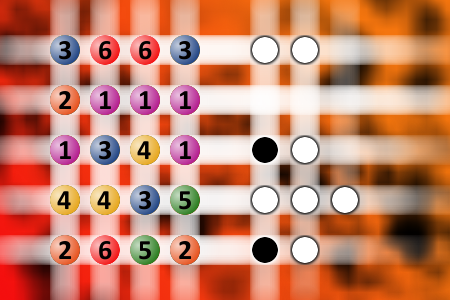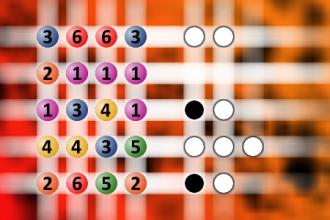Which is a winning combination of digits?
The computer chose a secret code (sequence of 4 digits from 1 to 6). Your goal is to find that code. Black circles indicate the number of hits on the right spot. White circles indicate the number of hits on the wrong spot.Correct answers: 23
The first user who solved this task is Nílton Corrêa de Sousa.
#brainteasers #mastermind

Sounds more like a nightmare...
An older couple wakes up in the morning and the husband looks over at his wife and says, " Wow! You wouldn't believe the dream I had..."
The wife replies, "Yes, go on tell me."
So the husband says "I had a dream that you left me after 20 years of being married."
The wife says, "Oh, it sounds more like a nightmare."
The husband says, "No, I am sure it was a dream."

